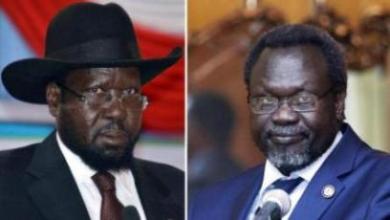US officials accuse S. Sudanese leaders of “hijacking” country
December 11, 2015 (WASHINGTON) – A United States senator on Thursday attacked, at a Congressional hearing, South Sudan president Salva Kiir and rebel leader Riek Machar, for the mess created in the country in the presence of its shocked embassy officials.
In the testimony presented before the US Senate Foreign Relations Committee, the envoys and experts who included John Prendergast, Founding Director of the US-based Enough Project, US Special Envoy Donald Booth, Ambassador Princeton Lyman, and representatives of the US Agency for International Development (USAID) and Amnesty International in the hearing, which was convened by Senator Bob Corker, Chairman of the Foreign Relations Committee, said South Sudan lacked able leadership.

“You’re targeting aid workers. I would be embarrassed to be in a hearing like this. I would be embarrassed to send out the kind of press release that you sent out prior to this hearing. I don’t know what kind of government you represent,” he lashed out to the diplomats.
President Kiir’s representatives, who are diplomats in Washington, were not permitted to speak at the occasion and could only listen to all the accusations labelled against their government by the top foreign policy making body in the US congress.
The Congressional hearing came in as South Sudan tries to put in place modalities for the proposed Transitional Government of National Unity after over 20 months of conflict.
Tens of thousands of people were killed and nearly two million civilians displaced in South Sudan’s worst outbreak of conflict since its secession from neighbouring Sudan.
“HIJACKED STATE”
In his testimony today before a Senate Foreign Relations Committee hearing on the theme, “Independent South Sudan: A Failure of Leadership,” Enough Project Founding Director John Prendergast described the war-torn nation as a “violent kleptocracy.”
“South Sudan and the other countries listed above are not simply failed states, as they are commonly referred to. They are hijacked states,” Prendergast told the hearing.
Prendergast joined Washington’s Special Envoy Donald Booth, Ambassador Princeton Lyman, and representatives of the United States Agency for International Development (USAID) and Amnesty International in the hearing, convened by Senator Corker.
“This war has been hell for the people of South Sudan, but it has also been very lucrative for their leaders. ‘War crimes pay’ has been the message,” said the Enough co-founder.
“When there are no limits to the hijacking of state resources or consequences for the use of violence to maintain power, instability and civil war are never far off. It is in the arena of global financial investigations into the proceeds of corruption used to fund mass atrocities that the U.S. has the most potential leverage,” he stressed further.
Meanwhile, Prendergast suggested approaches to bolster the peace, counter kleptocracy, and enhance accountability in South Sudan, using both financial and legal mechanisms.
Senator Corker on the other hand suggested that South Sudan President and his former deputy-turned rebel Machar should end up in jail for their involvement in the conflict.
The US special envoy to Juba, Donald Booth avoided direct attacks on Kiir and the armed opposition leader. Booth was insistent that the peace agreement signed by the two warring factions in August was still the best hope for ending the war in South Sudan.
Booth also informed the Committee of the planned visit to Juba of the rebel advance team as a sign that efforts to put in place a transitional government was on course.
TOUGH ACTION REQUIRED
The hearing presenters recommended tough actions including financial sanctions to be imposed on the South Sudanese government due to its intransigence to fully implement the peace agreement.
The hearing recommended mechanisms to control the management of the oil revenues in South Sudan by opening a bank account to be run by a third party to manage it on behalf of president Kiir’s government.
In the testimony, the presenters urged for “trade ban” to be imposed on South Sudan and for the US Treasury Department to impose sanctions on the government, pass the Global Magnitsky Act as well as direct the Financial Crimes Enforcement Network (FinCEN) to gather information and address potential money laundering activities.
“The U.S. and other governments working genuinely for peace in South Sudan (and other war-torn African states) can only enhance their influence in supporting peace and human rights if a concerted effort is made to expand economic pressure. And the surest route to building this kind of leverage is by hitting the leaders of the rival kleptocratic factions where it hurts the most: their wallets,” the document further recommended.
They said building cases at the Department of Justice-led Kleptocracy Asset Recovery Initiative to investigate and prosecute cases involving the US financial system was urgently needed.
They also hinted the possibility of prosecuting in court of law the rival factional leaders in the war, president Kiir and opposition leader, Machar.
(ST)
